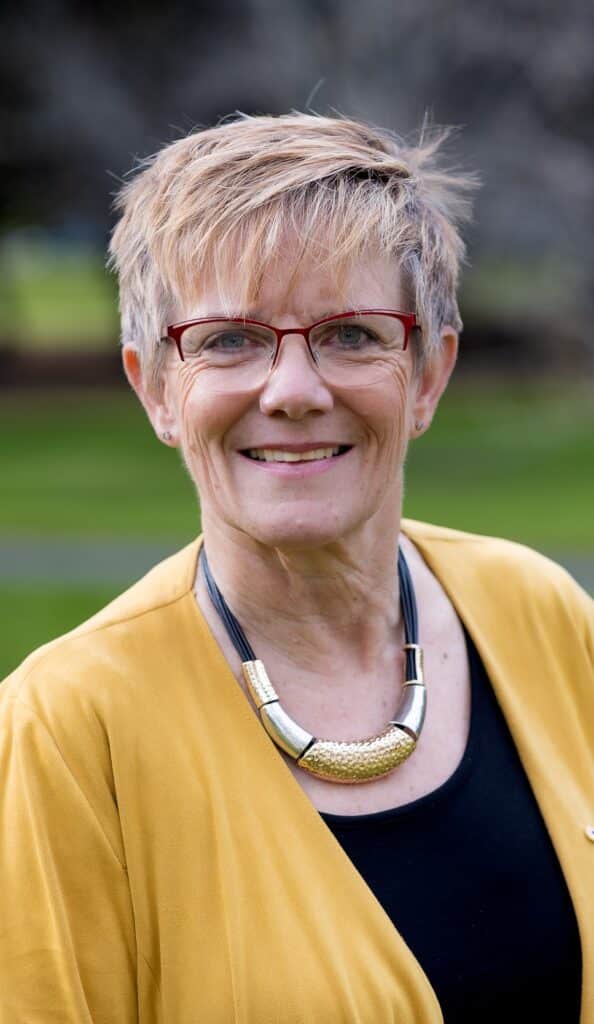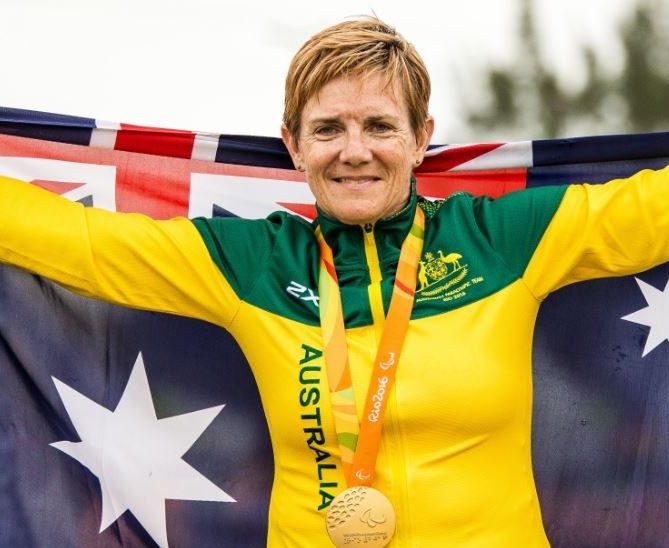At only 15-years-old, Carol Cooke was training to swim at the 1980’s Moscow Olympics before they were boycotted by most of the Western world.
Born and raised in Toronto, Canada, this setback was heartbreaking for Cooke who had big aspirations for herself in sport.
“That kind of changed my perspective,” Cooke tells Women’s Agenda, noting that she continued to swim competitively until yet another fork entered her road.
After moving to Australia in 1994, she was diagnosed four years later with Multiple Sclerosis (MS)– a chronic disease of the nervous system in which the body attacks itself by mistake. It’s a disorder that affects people differently, but for Cooke, the symptoms saw her using a wheelchair full-time by 2001.

“My diagnosis was given to me really badly,” she says. “So at the start, I just didn’t believe it.”
“With my MS, [the symptoms]- it comes and goes, so it’s called relapsing and remitting.”
“And it probably took me a good six months to believe that ‘okay, this is happening’.”
“And I just thought to myself, ‘I’m not going to let it define who I am’.”
With this mindset, Cooke continued to do what she loved, which was swimming at the time.
Then, in 2005, she attended an Australian Paralympic Talent Search day, where they asked her to take up the sport of rowing.
With an open mind and her trademark determination, Cooke decided to give rowing a go.
She ended up making the national rowing team in 2006 and 2008, and attempted to qualify for the 2008 Beijing Paralympics. After missing out on her Olympic dreams as a teenager, Cooke began to feel like she might finally reach her goal of competing at the highest level.
Unfortunately, her team narrowly missed out on qualifying, but this wasn’t going to stop Cooke from continuing to push herself in sport. Instead, she switched to cycling, with the goal to make the 2012 London Paralympic cycling team.
Cooke not only made the Paralympic team, but also won Gold in the Time Trial in London.
Following that highlight, she went on to make the Rio Paralympics, winning two gold medals. Then, in the 2021 Tokyo Paralympics, she won silver. In between all of this as well, Cooke has won 9 World Titles and in 2022, she finished the year ranked 3rd in the world for cycling.

Throughout all of this success, however, Cooke’s biggest challenge has been overcoming bias– particularly from coaches who have told her she was ‘too old’.
“The biggest challenge is getting people to understand that just because there’s a number attached to you, doesn’t mean that you can’t do certain things,” says Cooke, who competed at her first Paralympic games at the age of 51.
“If you feel your age, and you don’t want to do things– that’s up to you, but I just think it’s a number attached to us,” she says, adding that she’s been trying to get older women with a disability to realise that they can do so much more than they might initially believe.
It’s this advocacy that has seen Cooke become an ambassador for the Change Our Game movement this year. She was selected by the Office for Women in Sport and Recreation to join seven other inspiring women who are raising awareness on key issues in women’s sport.
Through this platform, Cooke wants to help girls and women living with a disability to understand that they can participate in sport too– they might just have to do it a bit differently.
“I think it’s really important for the person to realise that whatever their disability is, or their illness they’ve been diagnosed with, doesn’t define who they are,” says Cooke.
“And if they want to keep doing sport or even get involved in sport, [they] have to keep knocking on doors.”
“If one club turns you down, go to the next one,” Cooke advises people, noting that she doesn’t see a reason “not to make clubs inclusive across the board.”
“Anything’s possible,” she says, adding that instead of thinking ‘this is too hard’, we should ask ‘how can we do it?’.
“Don’t let your disability define you,” says Cooke.
“Just keep banging on those doors and saying ‘I want to do this’. Don’t give up especially if you’re passionate about what you do.”
Change Our Game Ambassadors are using their platforms to help drive change and raise awareness on key issues and barriers for women in sport. Change Our Game is led by the Office for Women in Sport and Recreation to level the playing field for women and girls. Be sure to follow the Ambassadors’ journeys through @ChangeOurGame on socials.

